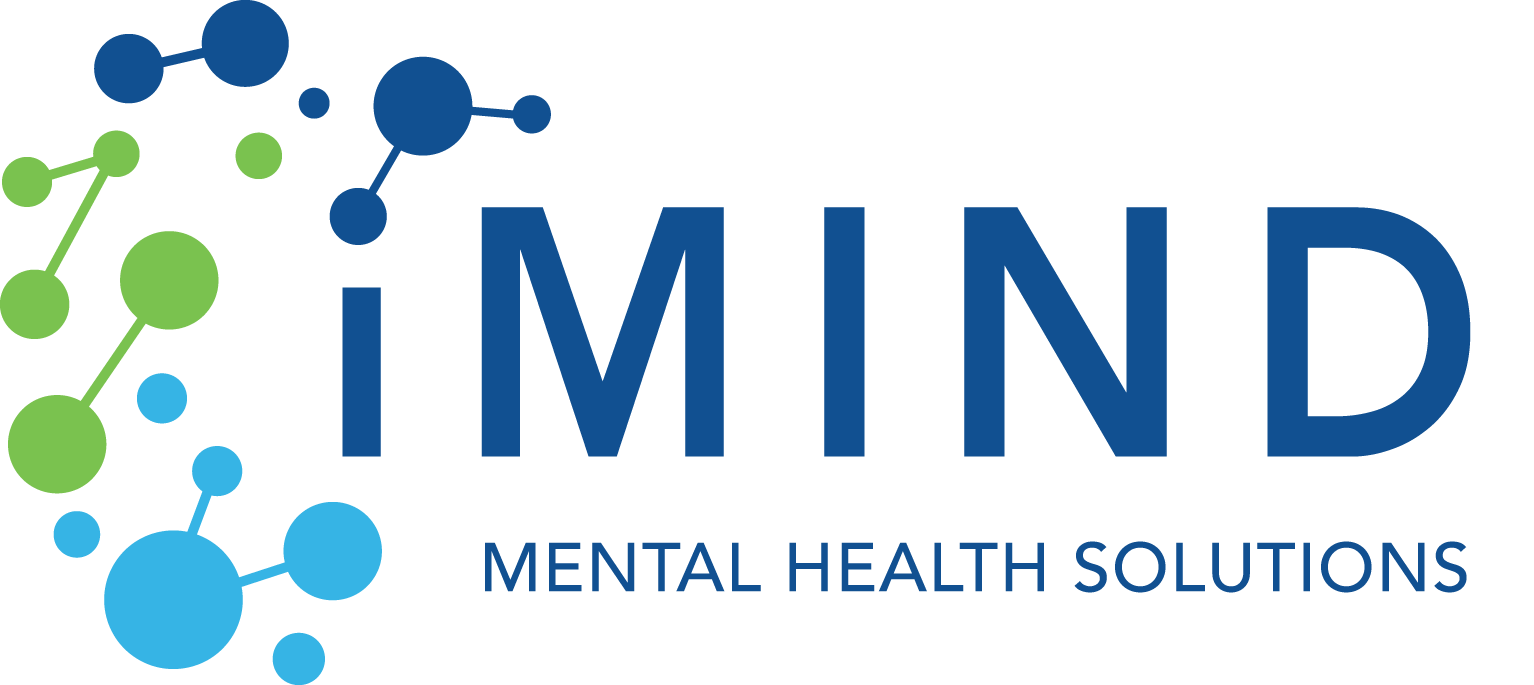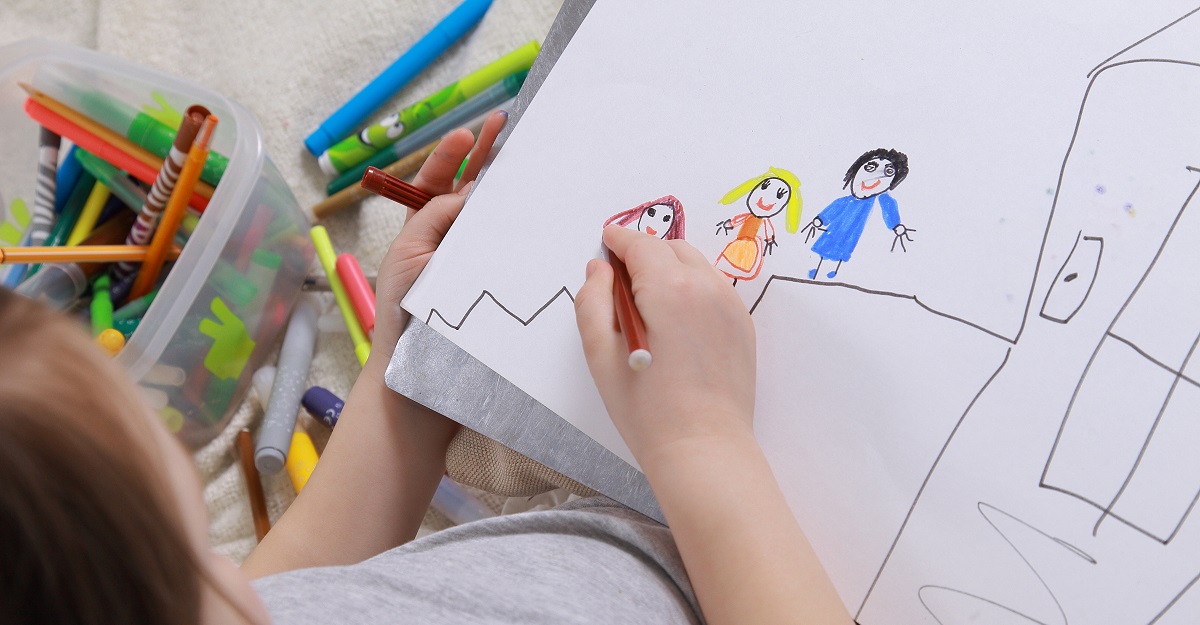What is Good Mental Health?
iMind Mental Health Solutions Resource

Good mental health is a sense of wellbeing. It’s a feeling of confidence – you can cope well with the stresses and challenges of life. It enables you to have positive self-esteem, develop rewarding relationships, and exercise control over your emotions. It doesn’t mean that you never feel frustration or sadness. It simply means that, despite what life throws your way, you can still function, be productive, and move forward toward your goals.
What is Mental Health?
“It’s all about how people think, feel, and behave.”
– Adam Felman, MedicalNewsToday (Felman, 2020)
We don’t have to question what physical health is. It’s the absence of disease. The same is true with our mental health.
Having a mental health condition can affect our emotions. It can keep us from having good relationships with others. It can make our moods unstable and keep us from functioning well in life. A lack of mental health can affect our physical health as well.
What Contributes to Mental Health?
“[Mental health is] how we cope, our ability to cope with those setbacks and challenges that life inevitably throws at us.”
– Kathy, What does mental health mean to me?, YouTube (University of Birmingham, 2020)
Having a mental health condition can be a common occurrence. It is nothing to feel ashamed or to feel bad about. Mental health problems occur because of one of two reasons, which are:
- Genetics (including brain chemistry)
- Events and Experiences (including abuse, a traumatic injury, substance abuse, or a serious medical condition)
Basically, mental illness springs from what you are born with and what happens to you, or some combination of the two. It’s nature, nurture, or both.
Are Mental Conditions Lifelong?
Similarly, you can experience lifelong mental conditions or situational ones.
For example, you may become depressed after the loss of a loved one or after giving birth. You may experience anxiety or post-traumatic stress disorder after a tragic event. After time and treatment, the mental health condition can be resolved.
Conversely, you may be born with a brain chemistry imbalance that is a hallmark of bipolar disorder. It can be treated with therapy and medication; however, it is a lifelong condition.
Types of Mental Health Conditions
“Some people seem to be able to take good mental health for granted. For others, maintaining our mental health requires almost constant vigilance and care.”
– Lisasaysthis.com (Rodrigues, 2016)
There is a cornucopia of mental health conditions. They are classified according to their causes, symptoms, and/or effects.
The Diagnostic and Statistical Manual of Mental Disorders (DSM5-TR) is the guide by which mental diagnoses are made. It has been updated seven times since it was first released in 1952, with the latest version released March 2022.
The number of conditions has grown from 102 in 1952 to 365 in the latest version – one for every day of the year. This reflects how much our knowledge about mental health has exploded over the years. Through research and observation, we now know more than we ever have about the origin, presentation, and treatment of mental health issues than ever before.
Research is still underway, and new methods of treatment are still being brought to the table to increase the quality of life for those who are affected by mental illness.
What are the Most Common Types of Mental Disorders?
Some of the more common types of mental disorders are:
- Anxiety Disorders
- Personality Disorders
- Mood Disorders
- Psychotic Disorders
- Eating Disorders
- Substance Abuse Disorders
These basic categories break down further into specific disorders. For example, anxiety disorders encompass generalized anxiety disorder, panic disorder, social anxiety disorder and specific phobias. They also include separation anxiety, agoraphobia, selective mutism, anxiety that is medication-induced, post-traumatic stress disorder, and more.
Mood disorders include depression, bi-polar disorder, seasonal affective disorder and more, while personality disorders include borderline personality disorder, narcissistic personality disorder, and avoidant personality disorder, among others. Psychotic disorders include schizophrenia, schizoaffective disorder, delusional disorder, and more.
Some may be surprised to find eating disorders and substance abuse disorders on this list. They both have psychological origins, however. Eating disorders include anorexia and bulimia and substance use disorders include alcoholism, opioid use disorder, and others.
Banishing Stigma About Mental Health
“Judging myself – or indeed others who experience mental illness – is the least helpful thing any of us can do. Who knows why I or anyone else has this tendency? What does matter is what I do from now on to help myself and allow others to help me.”
– Lisasaysthis.com (Rodrigues, 2016)
Just as you would not think unfavorably about someone who catches a cold, has diabetes, or develops cancer, you should not look down upon someone experiencing a mental condition.
The brain is susceptible to illness, just as the body is. In fact, all of us are vulnerable to developing a mental disorder at some point in our lives. Statistics show that one in two of us will.
In the past, having a mental disorder was portrayed as something mysterious and to be avoided at all costs. This is largely due to a lack of knowledge. It has only been recently that mental health has become a topic of conversation.
Now, we have NFL players, celebrities, and social media influencers speaking out about their mental health. By bringing this formerly taboo subject out into the open, awareness and understanding about mental health is increasing.
Similarly, anything unknown comes with a certain amount of fear. However, we know the origins of mental illness. We know it can be resolved and/or treated so that the individual returns to normal functioning. Mental illness does not reflect a weakness. Rather, it is something you are born with or develop in response to events or experiences.
It’s important to address stigma so that people with mental health are treated with the dignity they deserve. People who have a mental illness should not be discriminated against. With proper treatment, many lead productive and fulfilling lives.
What Mental Health Treatment Can Do for You
“There are many things that are in your control and other things that aren’t, and what we should really do as human beings is focus on the things that are in our control.”
– Jay, What does mental health mean to me?, YouTube (University of Birmingham, 2020)
If you do have something affecting your mental health, all is not lost. There are options for you, no matter where you live or what your income level may be.
Counseling/Therapy
American Psychological Association studies show that psychotherapy is effective in a myriad of ways. It not only yields positive and long-lasting results, but it also decreases the need for medical services.
In fact, counseling is the cornerstone of mental health treatment. Talk therapy has numerous benefits. Working in therapeutic alliance with your counselor, you can:
- Establish goals
- Identify solutions
- Enhance communication
- Develop coping skills
- Gain the unbiased perspective of an outsider
- Increase self-esteem
The above benefits just scratch the surface of the great outcomes to be had under the care of a qualified counselor or therapist.
Medications
A variety of medications are available to ease symptoms of mental disorders. They can alter brain chemistry to address imbalances, affecting areas of the brain responsible for thought and emotion.
The five most common types of psychotropic medications are:
- Anti-anxiety medications (anxiolytics)
- Anti-depressants
- Stimulant medication
- Mood stabilizers
- Antipsychotics
- Hypnotics
Studies show that medication works best when it is taken in combination with therapy. One reason is that it resolves or improves symptoms so that the client can focus on participating in counseling and fulfilling their daily obligations.
There can be some trial and error with finding the right medication, and some medications take longer than others to produce maximum effect.
New(er) Treatments
Noninvasive treatments that work directly on the brain, the source of all psychological issues, are exciting advancements in the field of psychiatry. Many of these treatments have been around for a while, but are just now starting to be more widely adopted as ways to combat mental health issues. Here are two of the most common:
- TMS – Transcranial magnetic stimulation (TMS) has been shown to be effective in treating difficult-to-treat Major Depressive Disorder. Those who are unresponsive or experience difficulties with two to four antidepressant medications are good candidates for TMS therapy. Pain-free, noninvasive, and with little-to-no side effects, TMS helps relieve the symptoms of depressive via a magnetic pulse delivered directly to the area of the brain that controls moods, stimulating nerve cells to activate regions thought to be underactive in depression.
- Neurofeedback – With neurofeedback, you are an active participant in training your brain to function better. Through the use of interactive games, movies, or music and delivered over a number of sessions, you teach your brain to stay with in acceptable limits of activity. Neurofeedback has been shown to increase focus, quell anxiety, control emotions, and help with insomnia. It is also used to speed recovery for brain injuries.
Mental Health is Achievable for All
If good mental health is alluding you, all is not lost. The skills needed to foster good mental health can be learned. It may take time, but it can happen. Find a qualified mental health professional to help you navigate the journey back to mental wellness. With the right help, you can be trained and coached back to optimal functioning, and, together, you can craft your best life.
- Research Shows Psychotherapy is Effective but Underutilized. (2012). American Psychological Association. Retrieved March 19, 2022, from the American Psychological Association
- Felman, A. (2020, April 13). What is Mental Health? Medical News Today. Retrieved March 19, 2022, from Medical News Today
- Kalin, N. H., M. D. (2020, May). The Critical Relationship Between Anxiety and Depression. Psychiatry Online, The American Journal of Psychiatry.
- Rodrigues, L. (2016, April 16). What Mental Health Means to Me. LisaSaysThis. Retrieved March 19, 2022, from LisaSaysThis
- University of Birmingham. (2020, October 8). What does mental health mean to me? YouTube. Retrieved March 19, 2022, from YouTube
Latest News
-
Top 10 Questions About Art Therapy for Mental Health
Art therapy has recently gained recognition for its unique blend of healing therapy and personal expression. Despite its growing popularity, there seems to be some misunderstanding about what art therapy entails, who it can benefit, and how it differs from other forms of therapy.
-
ADHD Strengths: The Positive Side of Attention Deficit Hyperactivity Disorder
Scattered minds, fidgety bodies, and difficulty focusing. Attention Deficit Hyperactivity Disorder (ADHD) often gets painted in shades of struggle. But what if there’s a brighter side to the story? What if, beneath the challenges of ADHD, lie unique strengths just waiting to be unlocked?



